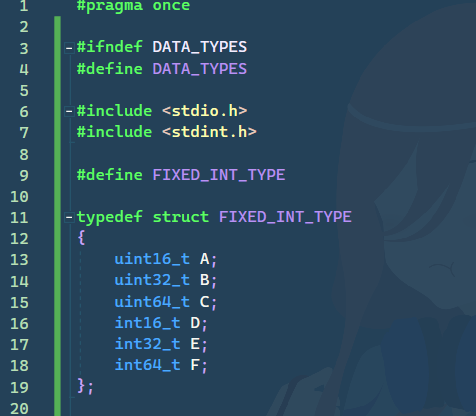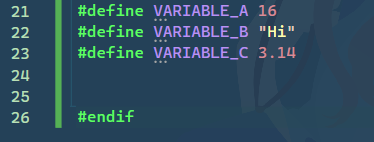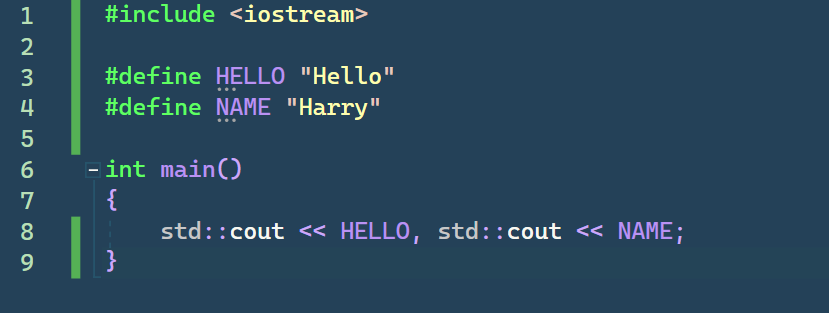Permalink
Cannot retrieve contributors at this time
Name already in use
A tag already exists with the provided branch name. Many Git commands accept both tag and branch names, so creating this branch may cause unexpected behavior. Are you sure you want to create this branch?
CPP-Cheatsheet/markdown/libraries/data_types.md
Go to fileThis commit does not belong to any branch on this repository, and may belong to a fork outside of the repository.
40 lines (24 sloc)
2.15 KB
This file contains bidirectional Unicode text that may be interpreted or compiled differently than what appears below. To review, open the file in an editor that reveals hidden Unicode characters.
Learn more about bidirectional Unicode characters
| # DATA TYPES | |
| One of the quintessential aspect of a Programming Language are its Data Types that it provides. | |
| These are important to learn, especially in C++ because, while they might look the same, they all serve widely different purposes. | |
| Let's begin by looking at the following screenshot: | |
|  | |
| Through this, I have defined two structs that will act as the basis of the type of data type you can | |
| include; fixed data types and non-fixed. | |
| Fixed data types are those of which that have a signed integer type associated iwth them with the | |
| width that corresponds with the bit count ranging from 8 to 64. Typically speaking, these data types are much faster compared to the non-fixed counterparts due to the lack of lease in their data range | |
| For example, data types that start with ``u`` typically have a range of 0 to 255. | |
| The ``u`` is a declarative that tells the compiler that in the bit count range, the constant ``1`` is used as the unsigned integer type. | |
| Whereas, ``int_t`` is a surrogate of ``uint_t`` because it's data range is much more vast at the expense of a longer compilation time, (the range being -128, 127) | |
| Another viable method of declaring data types and variables is through macros. | |
| C Macros are powerful because you are able to declare them like you would with any other | |
| variable except with the added benefit of one-liners in order to make your code cleaner. | |
|  | |
|  | |
| # END RESULT: | |
| ``Hello Harry`` | |
| # NOTE: | |
| It should be noted that while you can make the declrative of a macro anything such as an ``int, char, string, bool, double, float, const, etc`` | |
| You CANNOT define a macro as a ``struct`` otherwise it will not work | |
| By all means, you can do what I did in the first screenshot and define a macro with the same name as the struct but it needs to explictially state | |
| that it is a struct otherwise it will not work for some reason?! |